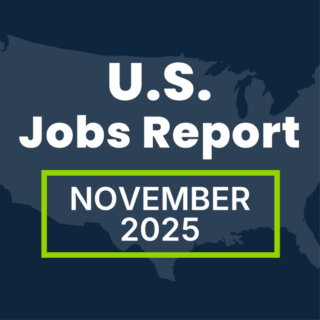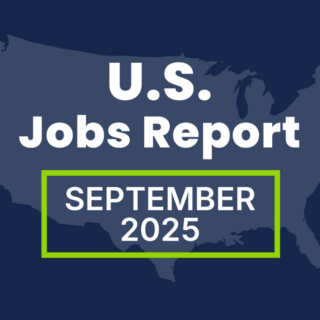Skills profiles across industries have already changed dramatically and will continue to evolve at breakneck speed. In the next 15 years, we’ll see a staggering change in the skills required to perform our work. The mismatch between the demands of the future workforce and traditional recruitment practices emphasizes why skills-based hiring strategies are now mission critical. To address these shifts, organizations must take a more nuanced approach to the evaluation of a candidate’s abilities. A skills-based assessment can provide a comprehensive profile of a candidate’s capabilities, allowing talent acquisition leaders to understand not just if someone can perform a role but their potential for future growth.
So, how can organizations effectively incorporate skills assessments into their talent acquisition strategy? This article will cover types of skills-based assessments, the benefits and some tips on how to get started.
The Limitations of Old Evaluation Methods
For decades, a candidate’s educational qualifications and work history served as proxies for their potential job performance. Hiring managers relied on academic degrees and years of experience to determine if someone had the necessary knowledge and abilities to succeed in a role. Traditional methods of evaluating candidates based solely on educational credentials and work experience are becoming increasingly ineffective in predicting job success.
Research shows these résumé- or CV-based evaluation methods have significant flaws:
- Educational attainment does not always equal job performance. A recent study revealed that 72% employers don’t see a degree as a reliable signal for assessing the skills of a candidate. Yet, 52% are still hiring from degree programs because it’s considered a less risky choice.
- Work experience becomes an unreliable indicator as jobs evolve. As skills requirements change, years spent in a role does not mean someone has the skills needed for that same role in the years to come.
- These methods exhibit bias and lack diversity. Over-reliance on education disqualifies capable candidates who lack degrees for socioeconomic reasons. According to Deloitte, a third of Gen Zers and millennials say they decided not to pursue higher education with the leading reason being financial constraints.
Defining Skills for Your Organization
The term “skill” is broad and encompasses every type of characteristic or capability that could be needed by employees to do a great job in a role. Capturing and defining skills requirements across your organization is an essential first step for developing a skills-based model.
So, what skills should companies look to define? Skills fall within three categories:
- Hard Skills / Technical Skills: These are the expertise areas like programming languages (i.e., python, Java), data analysis, financial modeling, and other role-specific knowledge. While they’re crucial for many jobs, they actually make up a small fraction of the overall skills picture.
- Soft Skills: Often undervalued, soft skills like problem-solving, emotional intelligence, communication and critical thinking are the grease that allows hard skills to operate smoothly. For most roles outside of niche specialties, these human skills make up the vast majority of what’s needed for success.
- Values Alignment and Organizational Fit: Less about executing the day-to-day work, this is about whether someone’s personality, mindset and motivations mesh with the company culture and values. It’s about determining if the candidate embodies the attitudes and behaviors you want to see in the role and at your organization.
Making the effort to align on the skills needed for each role across your organization will not only ensure the success of your skills-based assessment transformation but will also support learning and development, career pathing and talent management.
Types of Skills-Based Assessment
As part of a skills-based hiring strategy, skills assessments focus on a candidate’s demonstrated skills and competencies rather than traditional qualifications like education, years of experience or work history. Skills-based assessments help you map a candidate’s skillset to a role’s requirements, gauging whether someone can actually perform well according to the role’s core skills. It also helps you judge candidates objectively, removing barriers for underrepresented groups, and find the best match for the job.
Different types of skills-based assessments provide a more predictive and holistic view of talent, including:
Hard Skills
Skills assessments that measure hard skills help you evaluate technical capabilities like programming, data analytics, writing and more that power performance in specific job tasks.
Hard skills-based assessment examples:
- Coding tests: For technical roles, coding tests can assess a candidate’s programming skills, problem-solving abilities and familiarity with specific languages or frameworks.
- Simulations: Hands-on simulations or role-playing exercises can assess a candidate’s ability to perform specific job-related tasks, providing insights into their practical skills and competencies.
Soft Skills
Skills-based assessment for soft skills help identify transferable abilities like communication, problem-solving and emotional intelligence that enable workplace success.
Soft skills-based assessment examples:
- Situational judgement test: SJTs present candidates with multiple job-related scenarios and asks them to choose the most appropriate response from a list of options. Having an SJT as part of your assessment center lets you evaluate candidates’ performance against real-world scenarios. Plus, candidates get a better feel for what the day-to-day job would look like.
- Case studies: Presenting candidates with realistic business scenarios or case studies can evaluate their analytical thinking, decision-making and problem-solving capabilities in ways relevant to the job.
- Interviews: Asking in the interview about preferred approach and style allows the candidate to self-report.
Values Fit
Values fit assessment measures alignment between a candidate’s outlook and company culture, which can impact employee engagement and retention.
Values fit assessment examples:
- Values questionnaires: Values questionnaires are designed to measure a candidate’s values, beliefs and motivations to help you understand what drives a candidate and how well their values align with your company’s culture and mission. However, hiring managers may feel confident when they see a candidate’s values in action, i.e., when observing values-based behaviors in assessment center exercises. Alternatively, values-based questions can be included in an interview.
- Personality assessments: While not directly assessing skills, personality assessments can provide valuable insights into a candidate’s work style, preferences and potential cultural fit within the organization.
Benefits of Skills-Based Assessments
Embracing skills-based assessment helps you move beyond the limitations of evaluating based on past experience to focus on present potential. Here are some of the benefits:
Delivering Value to Candidates
Skills assessments should provide clear value to candidates as well as the organisation:
- Creates Transparency for the Candidate
When the assessment outputs feed directly into the interview process, the candidate has a more personalized experience, making the interview feel more collaborative. Plus, candidates see how their effort during the assessment center connects to the actual role. - Provides an Opportunity for Development
Skills assessments can become a career development tool. Even if the candidate doesn’t get the job, they gain visibility into their skills gaps and useful insight into building their skills for the future.
Delivering Value to Employers
Skills-based assessments also offer several advantages to employers over old evaluation methods:
- Better Prediction of Performance
Skills-based assessments provide better insight into on-the-job capabilities than education or experience alone, creating evidence-based, less biased hiring decisions. - Creates Wider Talent Pools
Assessing for skills uncovers capable candidates regardless of their background, helping you tap into talent you would have otherwise overlooked. - Facilitates Internal Mobility
Skill assessments aren’t just for recruiting. They can assist with identifying reskilling needs in your existing workforce, driving internal mobility and increasing retention. - Data-Driven Decisions
Leveraging data from your skills assessment allows for analyzing gaps, workforce planning and building career pathing and development programs.
Making the Shift to a Skills-Based Assessment Strategy
While the benefits are clear, many organizations struggle with how to effectively implement skills-based assessment. The following section outlines key steps and considerations for successfully integrating assessments into your hiring process. From identifying critical skills for each role to selecting appropriate assessment tools and training hiring managers, these guidelines will help your organization make a smooth and effective transition to skills-based hiring.
1. Create Stakeholder Buy-In
The first step in moving toward skills-based assessments is communicating with hiring managers and leadership the “why” behind skills assessments and how they benefit candidates and the business. This will help you down the line when it comes to adoption of skills-first evaluation amongst hiring manager and recruiters. Make sure you address any concerns around changes to legacy processes and discuss ways to integrate skills data into hiring workflows and systems.
2. Define Your Desired Skills and Competencies
To effectively implement talent assessments in a skills-based hiring strategy, organizations must first clearly define the desired skills and competencies your business is looking for. Skills-based assessments can be implemented at different levels:
- Role-Specific: Assessments directly tailored to the particular skills profile needed for success in a given job. Candidates are measured against a target skills benchmark.
- Organization-Wide: A broader evaluation of a candidate’s skills compared to the general abilities the company needs in its workforce. This enables skills mapping and planning beyond just filling an immediate role. This is a more strategic approach for organizations already comfortable with a skills-based approach, as all roles in the organization require mapping against a full set of potential competencies.
This process should involve input from hiring managers, current and past successful employees and other stakeholders to ensure a comprehensive understanding of each role’s requirements.
3. Choose the Appropriate Assessment Tools
With the desired skills and competencies identified, you can then select the appropriate assessment tools that best measure those abilities. This may involve implementing off-the-shelf assessments, developing custom assessments or a combination of both. There are many tools to choose from, so to avoid being overwhelmed, consider engaging a Recruitment Process Outsourcing (RPO) partner. PeopleScout’s assessment team features assessment psychologists that specialize in helping organizations determine the right tools for their talent program.
4. Facilitate Change Management
Once you’ve put skills-based assessments into practice, make sure you have training in place on the interpretation of your skills-based assessments output and how hiring managers should use this in their hiring decisions. You should also capture and share data with hiring managers and leadership to show the benefits of the change.
Skills-Based Assessment & The Future of Work
The accelerating pace of technological change means organizations can no longer rely on backward-looking education and experience signals alone to build teams. In the decades ahead, skills will only become more central in attracting, developing and deploying talent.
An experienced RPO partner can be instrumental in helping organizations transition to and optimize skills-based assessments. RPO providers can help you identify the most relevant assessment tools for specific roles, integrate these seamlessly into your hiring process, and train internal teams on interpreting assessment results and using them effectively in hiring decisions. With an RPO partner, organizations can more efficiently adopt skills-based hiring practices, building strategic advantage in navigating the future of work.
Learn more about our award-winning talent assessment solutions.




